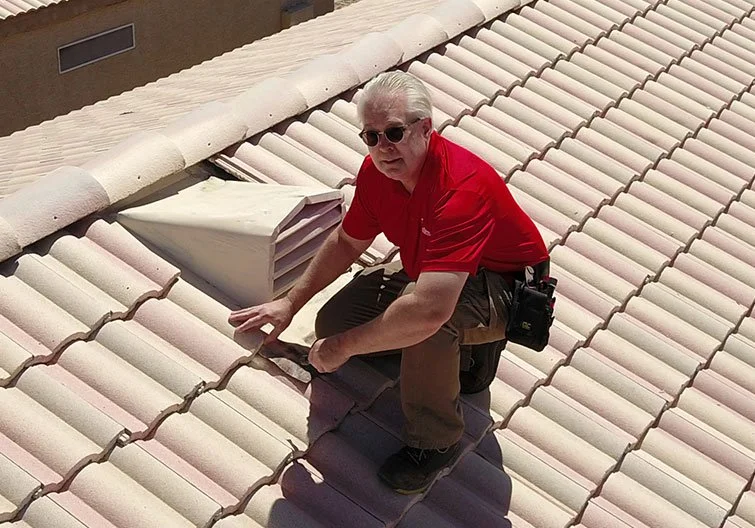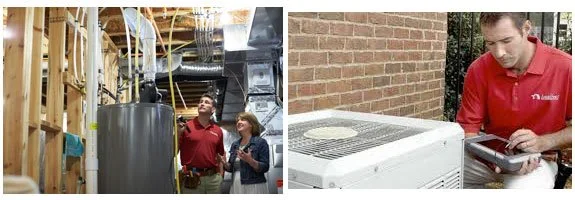A Guide to Home Inspections: When Selling Your Home
Selling a home can be a complex process, and one crucial step in the journey is the home inspection. A thorough inspection can uncover potential issues that might affect the sale or the value of your property. This guide will explore the key areas that home inspectors typically assess, shedding light on what sellers and buyers can expect during this critical stage.
Structural Integrity: Building a Solid Foundation
The foundation of a home is its backbone. Home inspectors meticulously examine it for any signs of cracks, shifts, or instability. They also scrutinize the framing of the house, ensuring structural soundness. This is essential during the pre-drywall phase of new construction. If issues arise, further investigation or consultation with a structural engineer may be recommended.
Roof Condition: Above and Beyond
A home’s roof protects it from the elements, making its condition crucial. Inspectors evaluate the age and state of the roof, looking for missing or damaged shingles and tiles. They also check for leaks and water damage in the attic, assess the flashing of chimneys, skylights, and other roof penetrations for proper sealing. A thermal image camera and moisture detector is also used to further evaluate any staining or anomalies.
Plumbing System: Ensuring a Smooth Flow
A functioning plumbing system is essential for any home. Inspectors examine water supply and drainage for leaks, corrosion, or clogs. Water pressure is tested, and fixtures, faucets, and toilets are inspected for proper operation. The water heater’s age and condition will also be part of the assessment.
Electrical System: Powering Up Safety
Safety is paramount when it comes to the electrical system. Inspectors scrutinize wiring for code compliance and safety. Outlets and switches are tested, and the electrical panel is examined for age, capacity, aluminum wiring and signs of overheating.
HVAC Systems: Heating and Cooling Efficiency
The comfort of a home relies on efficient heating and cooling systems. Inspectors check these systems for proper operation, maintenance, and capacity. Filters, ductwork, and vents are also inspected. A temperature split test is performed on A/C units and an evaluation of the system’s condensation drain lines.
Appliances: Testing for Functionality
If appliances are part of the sale, inspectors run tests to ensure they are in working order. This includes kitchen appliances like stoves, ovens, dishwashers, food disposals, refrigerators and microwaves.
Water Damage: Nipping Issues in the Bud
Inspectors look for signs of water damage on walls, ceilings, and around windows and doors. Additionally, any indications of mold or mildew may prompt for further investigation. Many inspectors also perform Air Quality and surface mold testing as an additional service.
Insulation and Ventilation: Keeping Things Comfortable
Insulation and ventilation play a crucial role in energy efficiency. Inspectors assess insulation in walls and ceilings, as well as ventilation in attics and crawl spaces to help assess potential moisture-related issues.
Windows and Doors: Checking for Seal
Windows and doors are inspected for proper operation, sealing, and signs of damage. Damaged or slipped channel balances are common on older single-hung windows. Weather stripping and seals are assessed for the condition and effectiveness.
Environmental Issues: A safe Home Environment
Many inspectors will offer a wide range of environmental testing. This includes tests for radon gas, airborne and surface mold, and lead-based paint. These resources are essential in addressing potential health risks associated with these environmental factors.
A home inspection is a crucial step in the real estate transaction process. Both sellers and buyers can benefit from understanding the key areas inspectors assess. For sellers, addressing potential issues before listing can enhance a home’s marketability. For buyers, attending the inspection and asking questions can provide valuable insights for negotiations. Ultimately, a comprehensive home inspection ensures that the journey from “for sale” to “sold” is a smooth and informed one.
AmeriSpec offers inspection services for sellers and buyers alike. Whether you’re getting ready to list your home for sale, are a current homeowner wanting a routine maintenance check, or a Realtor working with a buyer, AmeriSpec offers inspection services to meet your needs. Feel free to check out our array of service offerings today: CLICK HERE




